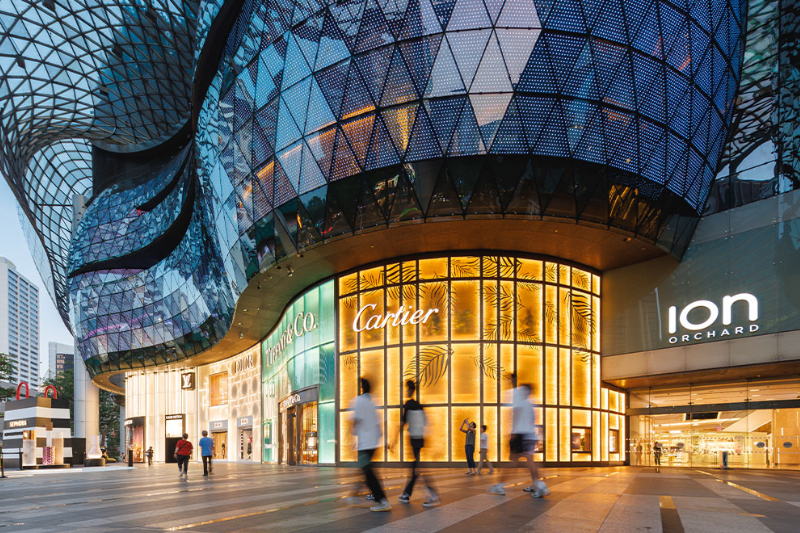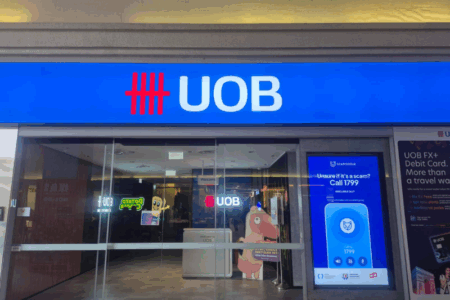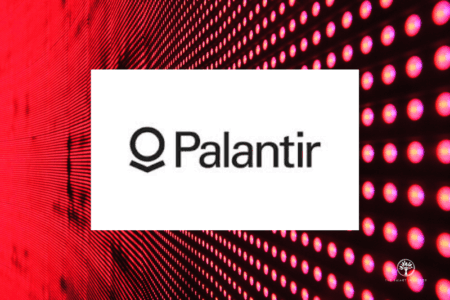If you are new to investing, you are probably scouting around for a reliable income stock.
REITs are the perfect asset class that can supply you with a stream of regular distributions, as they need to pay out at least 90% of their earnings.
These dividends act as a source of passive income that can supplement your earned income.
Of course, it’s important to select resilient REITs that can weather macroeconomic headwinds and that sport a good distribution yield.
These REITs should ideally have robust sponsors that can lower their cost of borrowing, and the REIT managers should also be active in improving the REIT’s portfolio.
Here are four Singapore REITs to consider for your starter portfolio.
Frasers Centrepoint Trust (SGX: J69U)
Frasers Centrepoint Trust, or FCT, is a retail REIT with a portfolio of nine suburban retail malls and an office building, all located in Singapore.
You may have visited some of these malls such as Causeway Point, Hougang Mall, and NEX, to name a few.
FCT’s total assets under management (AUM) stood at S$7.1 billion as of 31 March 2025 and the REIT is anchored by a reputable sponsor in property developer and manager Frasers Property Limited (SGX: TQ5).
The REIT reported a resilient set of financial results for the first half of fiscal 2025 (1H FY2025) ending 31 March 2025.
Gross revenue rose 7.1% year on year to S$184.4 million, lifted by contributions from renewed and new leases signed.
Net property income (NPI) increased by 7.3% year on year to S$133.7 million on good expense control.
Distribution per unit (DPU) for the REIT inched up 0.5% year on year to S$0.06054.
The annualised DPU for FCT stood at S$0.12108, giving its units a forward distribution yield of 5.6%.
The retail REIT reported a very high committed occupancy rate of 99.5% for its retail portfolio.
Investors should also be pleased to note that its portfolio enjoyed a positive rental reversion of 9% for 1H FY2025, supported by healthy leasing demand.
FCT is commencing work on its Hougang Mall asset enhancement initiative (AEI) in April 2025.
This phased AEI should be completed by the third quarter of 2026 (3Q 2026), and the manager is targeting a return on investment (ROI) of around 7%.
CapitaLand Integrated Commercial Trust (SGX: C38U)
CapitaLand Integrated Commercial Trust, or CICT, is a retail and commercial REIT with a portfolio of 21 Singapore properties, two German properties, and three Australian properties.
The total AUM for the REIT stood at S$26 billion as of 31 December 2024.
CICT boasts a strong sponsor in CapitaLand Investment Limited (SGX: 9CI).
The REIT was one of the few that reported a higher DPU for 2024.
Gross revenue rose 1.7% year on year to S$1.59 billion while NPI improved by 3.4% year on year to S$1.15 billion.
DPU edged up 1.2% year on year to S$0.1088, giving CICT’s units a trailing distribution yield of 5.3%.
CICT sported healthy operating metrics for its first quarter of 2025 (1Q 2025) business update.
NPI came in at S$291.5 million for the quarter, down slightly year on year, but would have been 1.4% higher on a like-for-like basis if the REIT had not divested its 21 Collyer Quay property.
Portfolio occupancy stood high at 96.4%, and the REIT enjoyed positive rental reversions of 10.4% and 5.4% for both its retail and office divisions, respectively.
Planning for Tampines Mall’s AEI is slated to commence in 4Q 2025 to help further improve the portfolio’s quality.
Parkway Life REIT (SGX: C2PU)
Parkway Life REIT, or PLife REIT, is a healthcare REIT with a portfolio of three hospitals/medical centres in Singapore, 60 nursing homes in Japan, and 11 nursing homes in France.
The REIT has an impressive track record of posting an unbroken streak of core DPU increases since its IPO in 2007.
The healthcare REIT is also helmed by a strong sponsor in integrated healthcare player IHH Healthcare Berhad (SGX: Q0F).
PLife REIT continued its solid DPU track record for 1Q 2025.
Gross revenue rose 7.3% year on year to S$39 million, aided by contributions from the French nursing homes and a newly acquired Japanese nursing home.
NPI climbed 7.5% year on year to S$36.8 million while DPU inched up 1.3% year on year to S$0.0384.
At a unit price of S$4.09, the REIT provides a forward distribution yield of 3.8%.
The REIT’s gearing stood at 36.1%, providing sufficient debt headroom for further acquisitions.
PLife REIT also has a right-of-first-refusal on Mount Elizabeth Novena Hospital that it could acquire in due course.
Mapletree Pan Asia Commercial Trust (SGX: N2IU)
Mapletree Pan Asia Commercial Trust, or MPACT, is a retail and commercial REIT with 17 properties across Singapore (4), Hong Kong (1), China (2), Japan (9), and South Korea (1).
These properties are valued at S$16 billion as of 31 March 2025.
MPACT is backed by a strong sponsor in Mapletree Investments Pte Ltd, a real estate giant that owns and manages S$77.5 billion of properties as of 31 March 2024.
The REIT reported a downbeat set of earnings for its fiscal 2025 (FY2025) ending 31 March 2025.
Revenue dipped by 5.1% year on year to S$908.8 million, with NPI falling 6.1% year on year to S$683.5 million.
DPU declined by 10% year on year to S$0.0802.
The weak performance was caused by the divestment of Mapletree Anson along with higher finance costs and depreciating regional currencies.
Despite this weakness, units of MPACT still provide a high trailing distribution yield of 6.8%.
The portfolio enjoyed a committed occupancy rate of 89.6% and also reported a positive rental reversion of 3.6%.
MPACT’s VivoCity crown jewel is undergoing a phased AEI with full completion expected by the end of 2025.
Phase 1 is already completed and Phase 2 should see an additional retail lettable area of 14,000 square feet created.
The estimated ROI will be over 10%.
Explore Singapore’s top “evergreen” stocks with our FREE report. It spotlights 7 Singapore blue-chip stocks with solid dividends and growth potential. Click here to download it now to create a flow of dividend income, regardless of market conditions.
Follow us on Facebook and Telegram for the latest investing news and analyses!
Disclosure: Royston Yang does not own shares in any of the companies mentioned.





